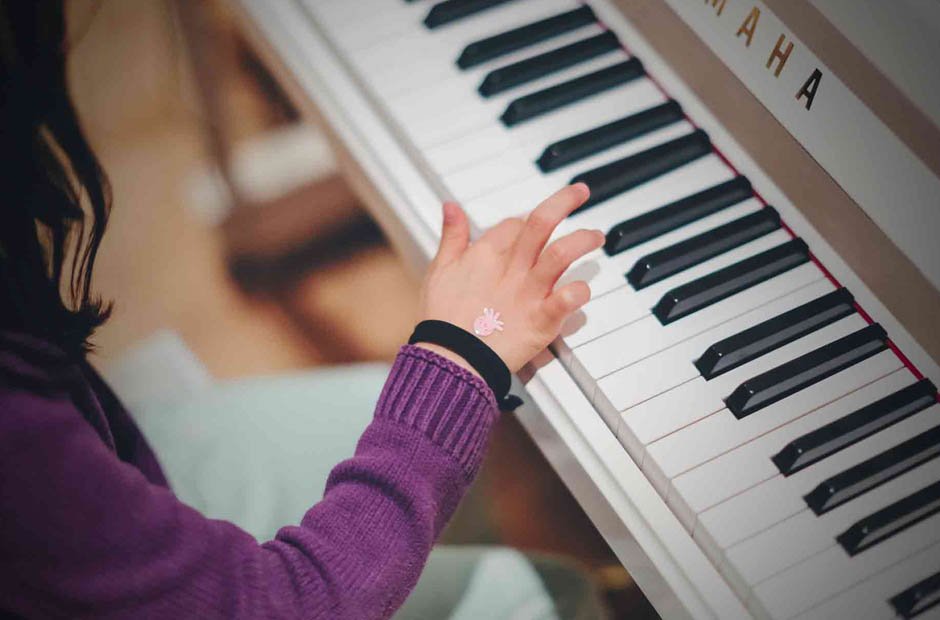Playing a musical instrument is an enriching experience, and the keyboard is a popular choice for many aspiring musicians. Keyboard classes are vital in nurturing and developing musical talent, providing students with a solid foundation in music theory, technique, and performance skills. This article will explore the importance of online keyboard classes in developing musical talent and their benefits to students.
Building Fundamental Skills: Music Theory and Technique
Keyboard classes serve as a platform for students to learn essential music theory and technique. Students gain an understanding of musical notation, rhythm, scales, chords, and other fundamental concepts. They also learn proper hand positioning, fingering techniques, and hand coordination. Keyboard classes provide a structured learning environment where students can develop these foundational skills systematically, laying a solid groundwork for their musical journey.
Enhancing Finger Dexterity and Coordination
Playing the keyboard requires precise finger movements and coordination between both hands. Keyboard classes provide exercises and practice routines to enhance finger dexterity and coordination skills. Through regular practice and instructor guidance, students develop the ability to play scales, arpeggios, and complex musical passages with fluidity and accuracy. These skills enhance their performance on the keyboard and carry over to other instruments, fostering a versatile and adaptable approach to music.
Developing Musical Expression and Interpretation
Beyond technical proficiency, keyboard classes also focus on developing musical expression and interpretation. Students learn to convey emotions, dynamics, and nuances through their playing. They explore various playing styles, experiment with phrasing and articulation, and learn to interpret musical pieces uniquely. Keyboard classes provide a nurturing environment where students can express their creativity and develop their musical voice, instilling a deeper appreciation for the art of music.
Performance Opportunities: Gaining Confidence and Stage Presence
Keyboard classes often include opportunities for students to perform in front of their peers, families, and larger audiences. These performances help students develop confidence, overcome stage fright, and refine their stage presence. Regular recitals, competitions, and ensemble performances foster a sense of achievement and allow students to showcase their progress. These experiences are invaluable in shaping a musician’s confidence, poise, and ability to connect with an audience.
Cultivating Discipline and Commitment
Learning to play the keyboard requires discipline and commitment. Keyboard classes teach students the importance of consistent practice and hard work. Students are encouraged to establish a practice routine and set goals for themselves. Students develop discipline, perseverance, and a strong work ethic by dedicating regular time to practice. These attributes benefit their musical journey and transfer to other areas of life, fostering a sense of determination and resilience.
Collaborative Learning and Networking
Keyboard classes often provide opportunities for students to collaborate with fellow musicians, whether in duets, ensembles, or group performances. Collaborative learning allows students to develop their ability to listen, adapt, and work together as a team. It also exposes them to different musical styles and genres, broadening their musical horizons. Keyboard classes also provide a networking platform, connecting students with like-minded individuals and potential musical collaborators, opening doors to future musical endeavours.
Conclusion
Online keyboard classes are crucial in developing musical talent and nurturing a lifelong love for music. These classes teach students essential music theory, technique, and performance skills. They develop finger agility, coordination, and the ability to express themselves musically. Keyboard classes also provide performance opportunities, fostering confidence and stage presence. Moreover, these classes cultivate discipline, commitment, and collaborative skills. By immersing themselves in keyboard classes, students embark on a transformative musical journey that shapes their musical abilities, artistic expression, and personal growth. Whether pursuing music as a career or a fulfilling hobby, the skills and experiences gained in keyboard classes lay the foundation for a lifelong musical adventure.
















